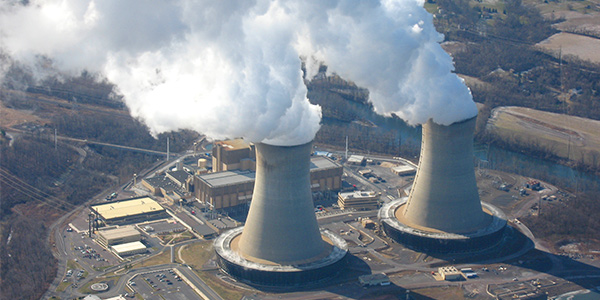By Christen Smith
An earnest attempt to save Pennsylvania’s Three Mile Island fell apart last week, but that doesn’t mean state lawmakers will abandon support for nuclear subsidies altogether.
“We still have eight other nuclear reactors in this state and advocates of the bill who still think it’s the best solution moving forward,” said Mike Straub, spokesperson for the House Republican Caucus.
Exelon dealt a blow to the state’s nuclear fleet last week when it announced TMI will close later this year after the House Consumer Affairs Committee stalled on a proposal to keep it running. (See related story, Exelon to Close Three Mile Island.) House Bill 11, as it stands, would create a third tier for nuclear power in the state’s Alternative Energy Portfolio Standards (AEPS) program, from which suppliers must buy an additional 50% of their power by 2021. Supporters argue there’s no path toward a cleaner, carbon-free Pennsylvania without the industry, while critics faulted the potential stifling impact of subsidies on the wholesale energy market that could spike electricity prices.
After four public hearings and testimony from dozens of experts across the utility sector over the last six weeks, Committee Majority Chairman Brad Roae (R) said the legislature must carefully weigh the complexity of the proposal and lamented that no action they could take would save TMI. (See Pa. Lawmaker Contends TMI Rescue Unlikely.)
“Work continues on the bill,” Straub said. “Our caucus wasn’t able to reach a consensus on it yet, and I think that speaks for itself.”
Republicans hold a 109-93 edge in the House of Representatives and 26-22 margin in the Senate — where the Consumer Protection and Professional Licensure Committee considered a very similar bill with a smaller, but still significant, carve-out for nuclear energy. (See Pa. Lawmakers Introduce 2nd Nuke Subsidy Bill.)
“We haven’t discussed it yet,” said Jennifer Kocher, spokesperson for the Senate Republican Caucus. “It might be something members will want to take another look at, but we haven’t had those conversations yet.”
Straub and Kocher both said it’s too soon to know how much the issue will play into upcoming budget negotiations as lawmakers ready a bill ahead of the June 30 deadline. It’s typical for prominent policy issues to wind up written into one of the legislature’s various code bills passed each year, but Senate Minority Leader Jay Costa (D) doesn’t think updating the AEPS to include nuclear will be one of them.
“While TMI’s closure is regrettable, we will continue to fight to keep the other four facilities open and operating,” he said. “Without the urgent timeline imposed by TMI, I do not expect this to be a major piece of budget negotiations this year.”
Democrats also appear united on expanding renewable subsidies already in the AEPS — via companion proposals like House Bill 1195 and Senate Bill 600 — in exchange for adding a third tier for nuclear energy. (See Pennsylvania Joins US Climate Alliance.)
“The emerging consensus is that the inclusion of a new tier for nuclear in Pennsylvania’s AEPS will also require sharp increases in the required benchmarks for renewable forms of energy,” said Bill Patton, House Democratic Caucus spokesperson. “It’s evident now that substantial Democratic support is needed to pass any AEPS bill, and Democrats want to see more of the state’s overall production coming from renewable sources.”
Patton described losing TMI as a “blow” to workers and businesses in the region, but he said the caucus wants to ensure state policy will balance the needs of the remaining nuclear facilities while promoting expansion of renewable energy. FirstEnergy said it will retire its Beaver Valley plant in western Pennsylvania in 2021, well ahead of the expiration of its operating license.
“Any effort to reopen our AEPS should include an increase to our requirements with regard to renewable energy generation resources,” Costa said. “We need a comprehensive approach to clean energy.”




